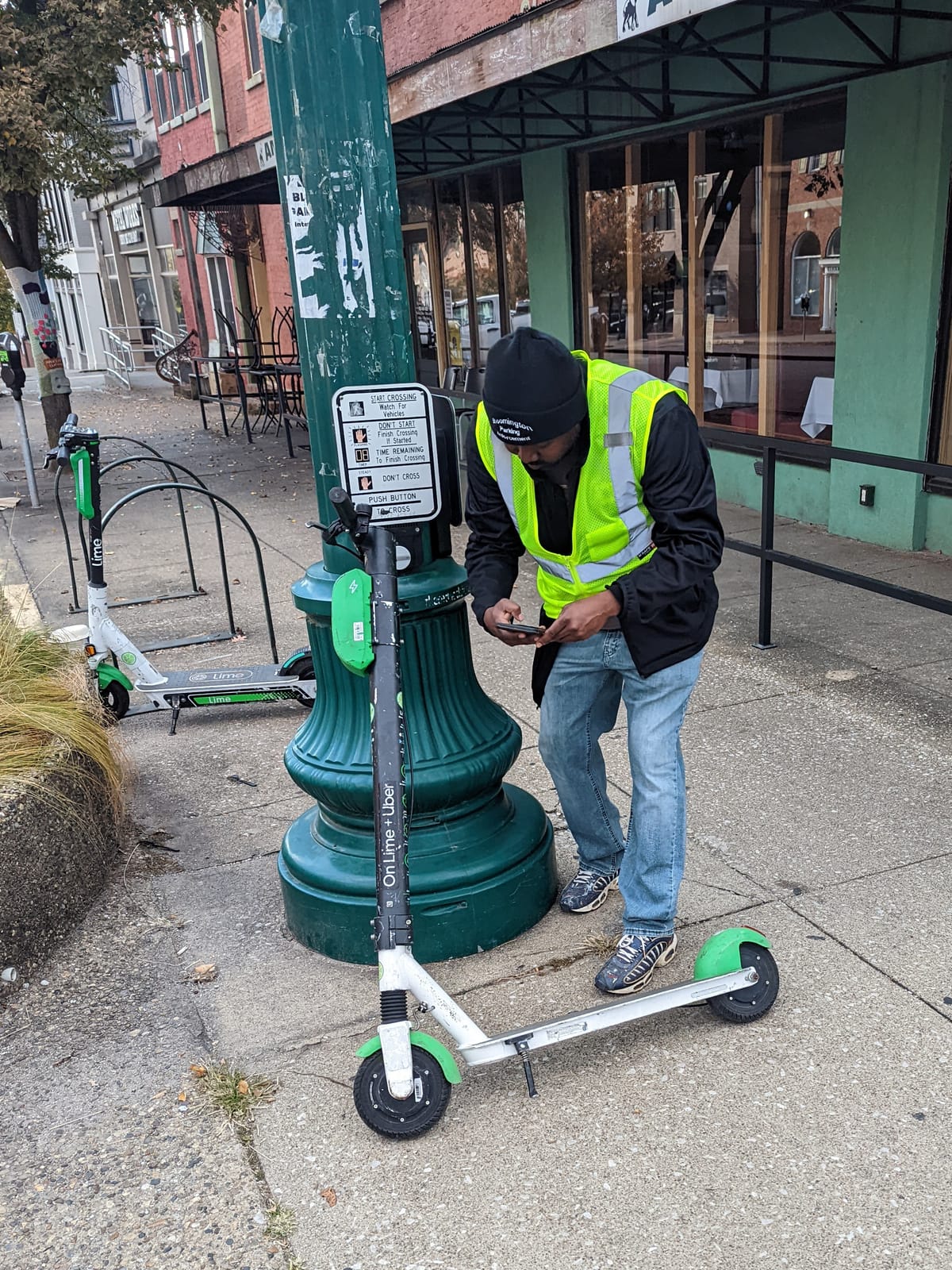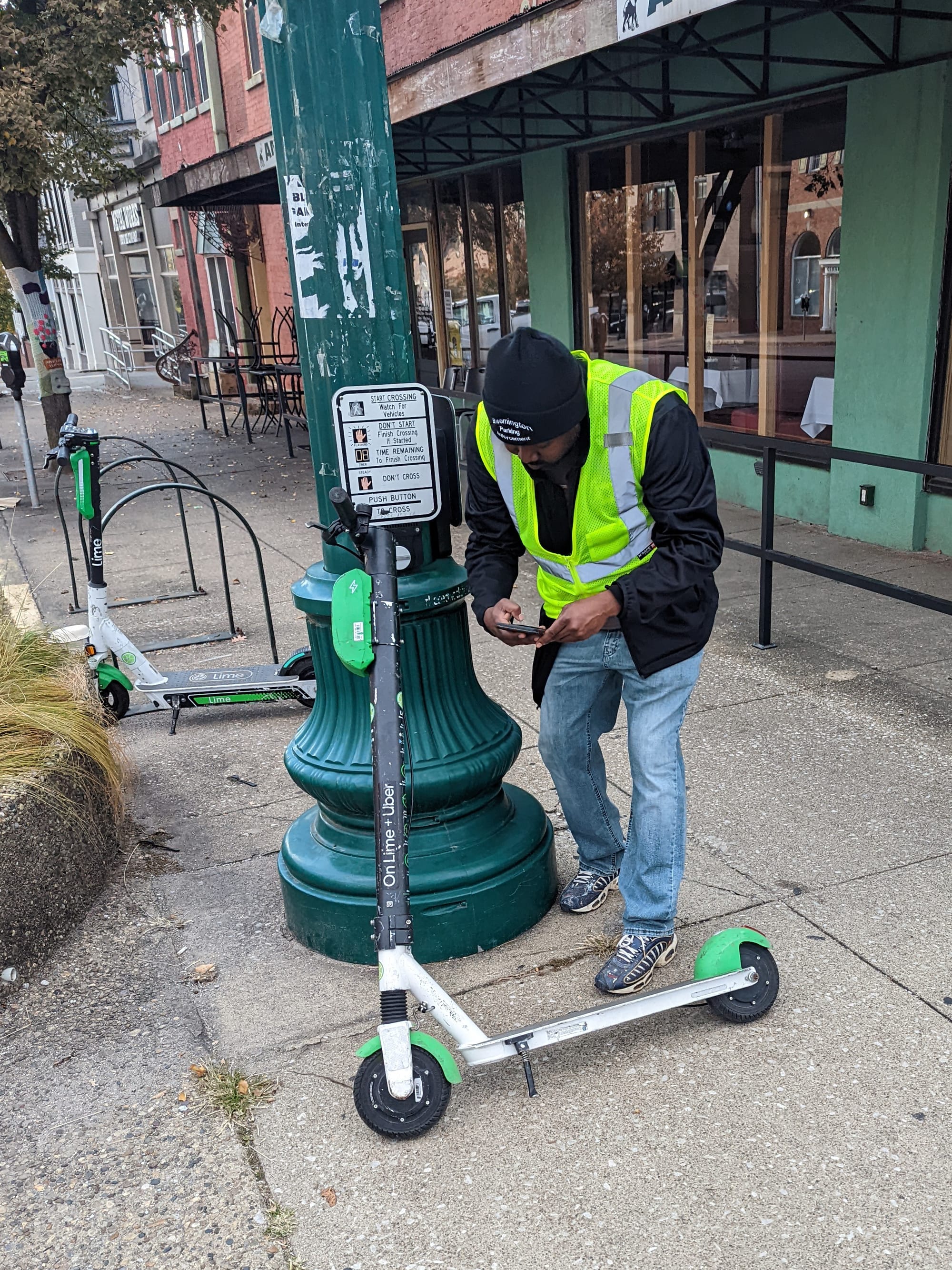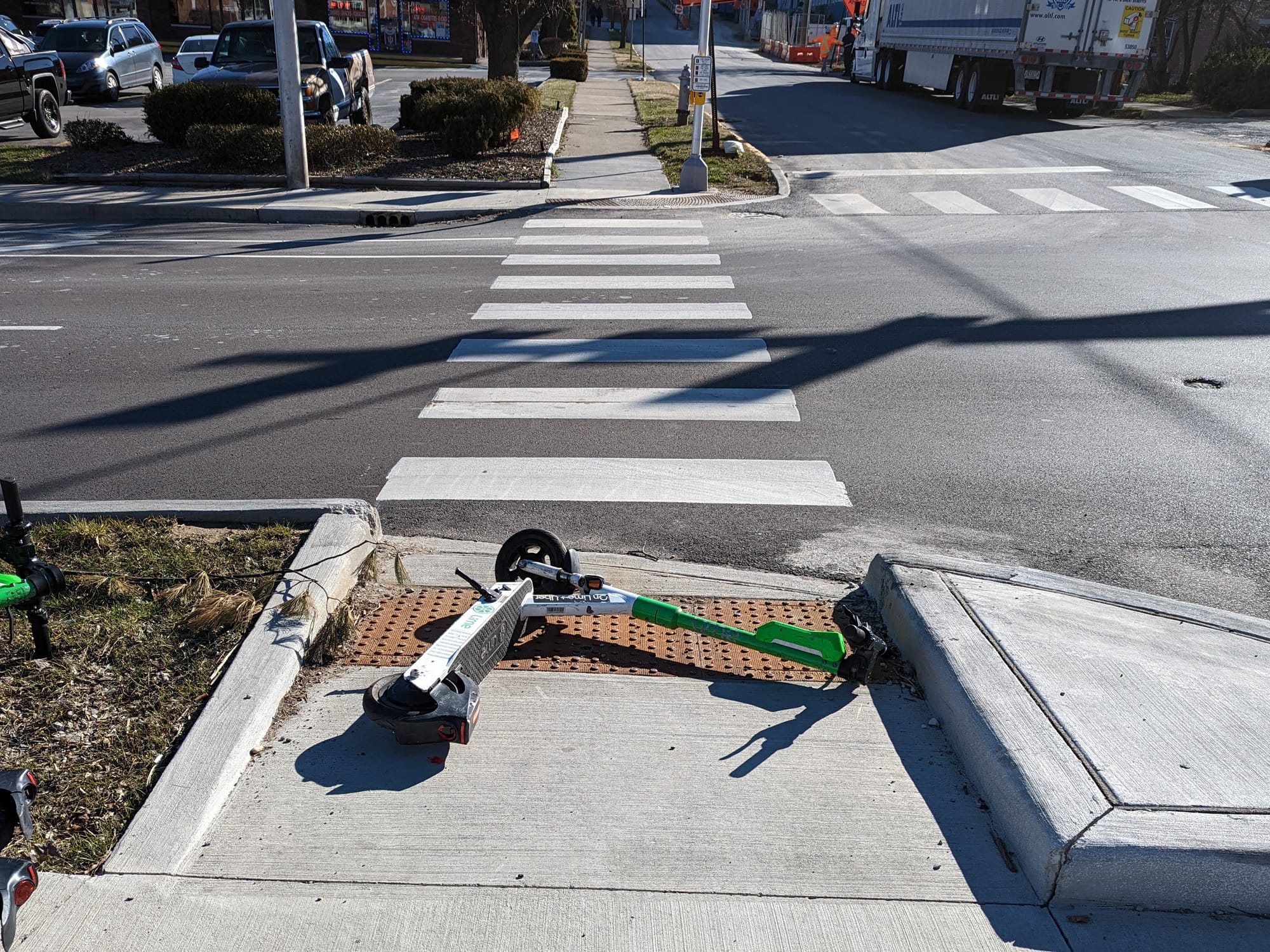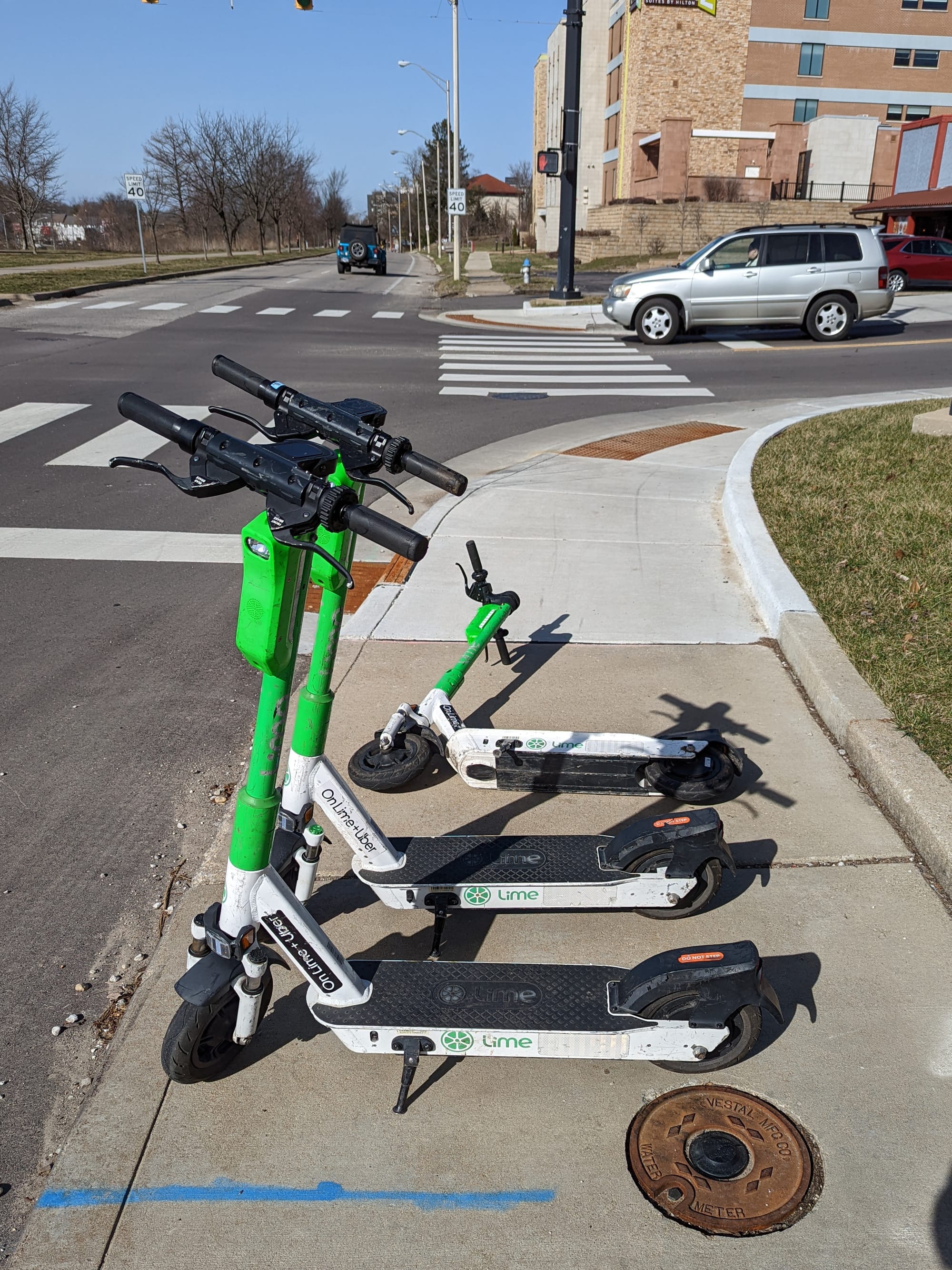Bloomington concedes: Simple tickets can’t be given to scooter companies for bad parking by their users




In late 2021, The B Square reported that no citations had been issued to scooter companies for violating the parking regulations laid out in a local ordinance, which was approved by the city council in July 2019.
When no ordinary parking tickets were issued to scooter companies, that came as a surprise to some residents—given the number of scooters they routinely encountered blocking ADA ramps and sidewalks in the downtown area, or in their residential neighborhoods.
The lack of any citations was especially unexpected, in light of the assurance given by city attorney Mike Rouker on July 31, 2019— the night the city council enacted the scooter ordinance. Rouker said that if scooter parking became a problem, parking fines would be imposed on scooter companies whenever the city saw a parking problem.
In August 2022, The B Square raised a question to Bloomington’s corporation counsel, Beth Cate, about the enforceability of the city’s ordinance that regulates shared electric scooter parking. That email went unanswered.
But last week, six months later, Bloomington’s director of economic and sustainable development, Alex Crowley, wrote in response to an emailed question from The B Square: “[T]he language in the ordinance needs to be tightened up, to give us the flexibility to impose fines on [scooter company] without having to impound.”
Crowley clarified in a followup email his understanding that imposing a fine on a company, without impounding a scooter, was not a possibility under the wording of the current ordinance.
Impounding a scooter was something that in July 2019 Rouker had portrayed to the city council as coming later, during a phase of enforcement that came only after fines on the companies had not been effective at achieving compliance .
Here’s how Rouker laid it out to the council in July 2019: “If the scooter company wants to pass those fines on to the user, who they can identify, and we cannot—because we do not want that personally identifiable information—they are welcome to try to pass those fines on to their user, the user who parked their scooter illegally.”
Rouker added: “If it gets severe enough, of course, then impoundment is the next step. And impoundment entails a storage fee and impoundment fee.”
In his emailed answer to The B Square, Crowley described impoundment as requiring a “significant operational effort.”
In July 2019, Rouker gave the council an assurance that the city was committed to issuing simple fines of scooter companies as a strategy for ensuring compliance:
Rouker told the council:
So just to be clear, at the same time, that Bird or Lime or another scooter company may be taking those additional steps against their own users, the city, if this is an issue, will be fining them every single time we see a parking issue. So there will be a municipal violation for that illegal parking, which this ordinance permits. And we’ve talked about at length, what those parking, those non-moving violations look like. So there would be parking tickets associated with that. So I suppose if the company wants to move very slowly and pay lots and lots of fines to the city until we’re fed up enough that we either revoke their license or geofence an area, that’s a business decision, but I don’t know if it’s a sound business decision.
In fall 2022, starting in the first part of October, the city of Bloomington’s public works department hired some part-time temporary workers to monitor scooter parking infractions. They were not tasked with writing tickets—their job was to document the violations and to move the scooters.
At the Dec. 19, 2022 work session held by the board of public works, public works director Adam Wason reported out for the period when the part-time temps were monitoring scooters. Wason said there were 186 violations by Bird and 232 from VeoRide. He did not report any violations for Lime. Those infractions were handled by moving the scooter to a legal location and documenting the infraction, Wason told the board.
To pay for the part-time temps, the city used proceeds from the fees that are paid by scooter companies for a license to operate their business in Bloomington’s right-of-way—$10,000 per year, plus 15 cents for each ride taken on the company’s scooters.
At the Dec. 19 work session, Wason called hiring the temp workers to document infractions “a good use of those funds.”
The license renewals for the three scooter companies operating in Bloomington, which were supposed to be considered by the board of public works in December, were delayed. At the Dec. 19 work session, Wason said the license renewals would be put in front of the board of public works “in the spring time frame.”
For now, the scooter companies are operating under expired agreements.




Comments ()